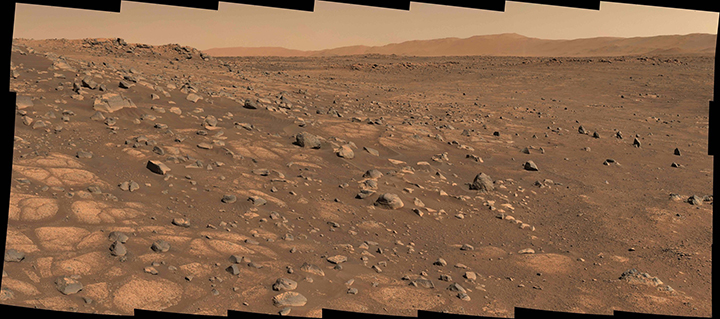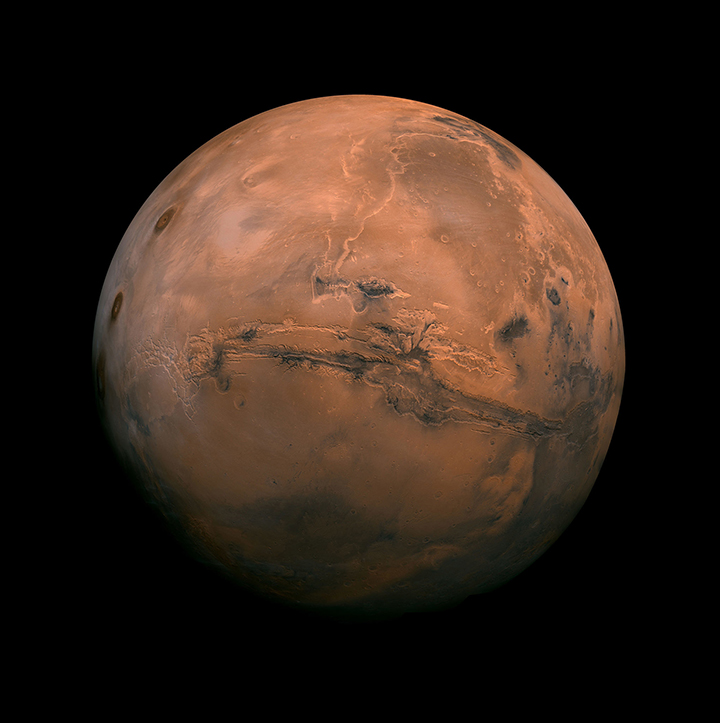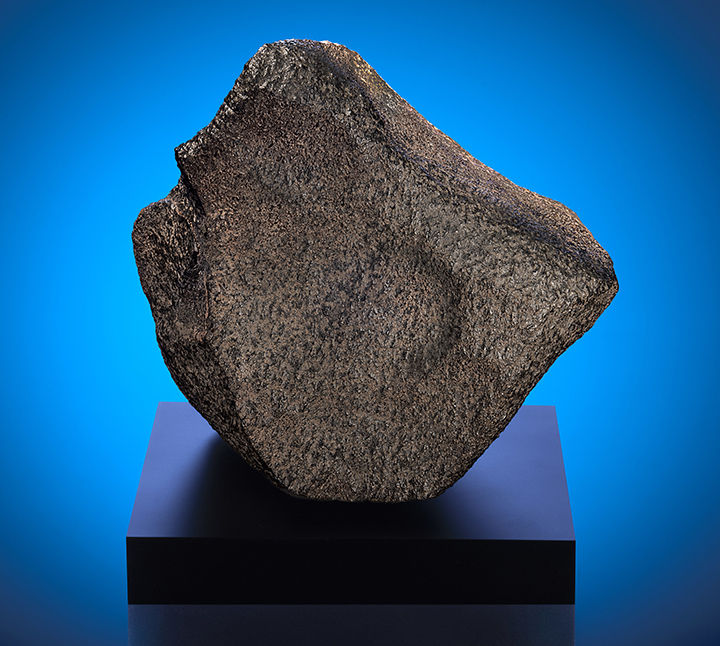When the Maine Mineral & Gem Museum opens on September 1st, it will include the largest intact Mars rock on Earth. The specimen weighs 32 pounds and measures 9″ x 10″ x 6.5″ inches.
Mars is among the most exotic substances on our planet, with less than 500 pounds known to exist. It was an asteroid impact on the Martian surface that ejected surface material into an Earth-crossing orbit.
Scientists believed similarly exotic rocks originated from Mars as a result of their extraordinary chemical and isotopic markers. The proof of Martian origin, however, arrived in 1995 when similar samples with tiny bubbles were discovered to contain small volumes of gas — which turned out to be a perfect match with the signature of the Martian atmosphere as determined by NASA’s Viking probes.
This specimen was acquired for the Museum by meteorite dealer Darryl Pitt in April 2021 from a Mauritanian meteorite and desert truffle hunter. For confirmation of his belief, this could be Martian, Pitt sent a small sample to Dr. Carl Agee — the director of the Institute of Meteoritics and one of the world’s most renowned classification experts of Martian meteorites.
Following a peer review of Dr. Agee’s analysis and confirmation, this was indeed a massive piece of the planet Mars, scientists named the meteorite “Taoudenni 002” as this was the second meteorite to be recovered from near Taoudenni, Mali — a desert salt-mining center 400 miles north of Timbuktu.
The meteorite is primarily comprised of pyroxene, olivine and maskekynite — the impact glass whose bubbles are known to contain Martian atmosphere.
“This is a spectacular specimen of Mars,” said Pitt. “And it’s the perfect accompaniment to the exhibit just across the room: the largest known piece of the Moon other than the Moon itself.”









